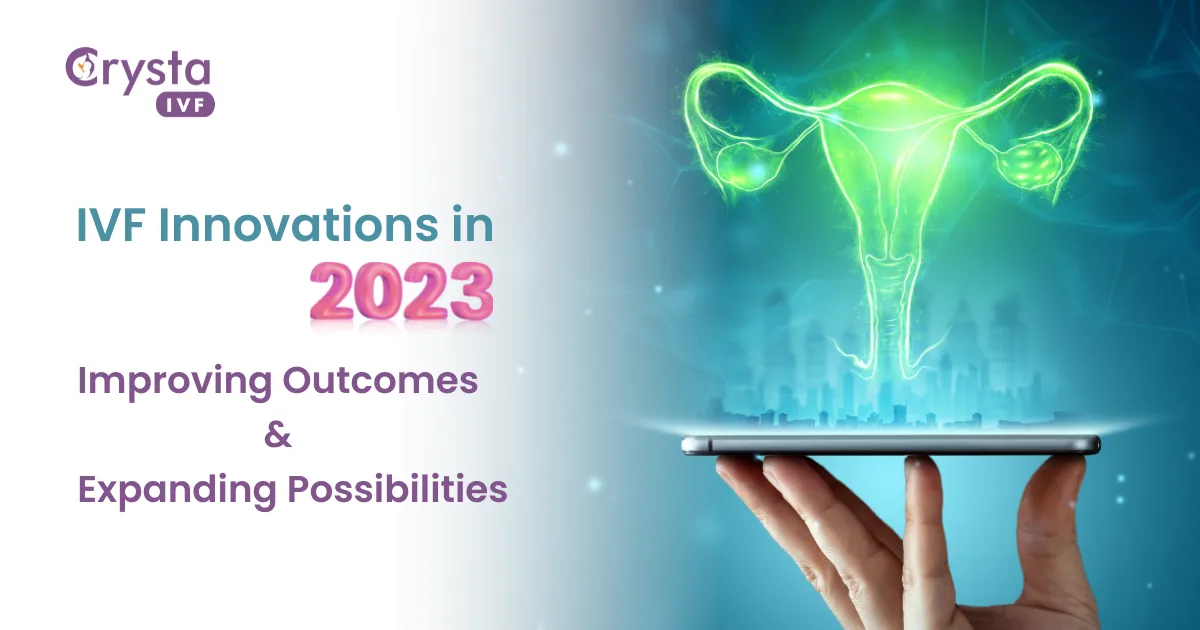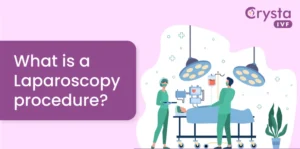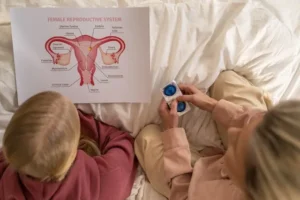Becoming parents is a dream for many couples, but it can be challenging for some. Fortunately, IVF has provided hope for millions of couples worldwide by helping them achieve their dream of starting a family.
With its high success rate in recent years, experts are looking to incorporate new technological advances in IVF and other fertility treatments.
Fertility treatment has come a long way in recent years, with numerous advances and trends helping to improve the success rate and treatment experience for those seeking to start a family.
In vitro fertilization (IVF), in particular, has undergone significant changes and innovations in recent years, leading to better outcomes and expanded treatment options for patients.
IVF Demand in India on the Rise
Recent research shows that India’s demand for IVF treatments has steadily increased. In 2018, the market for IVF treatments in India was valued at $478.2 million and is expected to reach $1,453.0 million by 2026, with a compound annual growth rate of 14.7%. These numbers suggest that the Indian IVF market is flourishing and has a bright future ahead.
Although numerous shifts and developments are being made in this field, many people still wonder about the latest breakthroughs in IVF, embryo freezing, and cryo-preservation.
In this article, we will explore such latest trends and innovations in fertility treatment that are expected to get a boost in 2023 and the coming years.

The Next Generation of IVF Treatment
IVF, or in vitro fertilization, is a fertility treatment that has helped millions of people overcome infertility and start families over the years. It involves fertilizing an egg with sperm in a laboratory dish and then transferring the resulting embryo into the uterus.
IVF has come a long way since it was first developed in the 1970s, and it continues to evolve and improve due to ongoing advances and trends in the field.
Here are some promising innovations in the field expected to improve the healthy outcomes and success rate in 2023.
Artificial Intelligence (AI) In IVF
Artificial intelligence (AI) is becoming increasingly popular and a trend in the world of IVF. AI has shown promising results as it has the potential to analyze large amounts of data and identify patterns that may not be apparent to the human eye, making them valuable tools for predicting pregnancy outcomes and selecting the most viable embryos for transfer.
From fertilization to the blastocyst stage, AI may help in ongoing forecasts by integrating with time-lapse imaging (TLI) technologies.
Studies have found that AI can improve the success rate of IVF by helping doctors to select the best embryos for transfer and reducing the risk of miscarriage.
While the use of AI in IVF is still in its early stages, it shows promise as a tool for improving outcomes and expanding treatment options.
Stem Cell Treatment
In recent years, stem cells have become a trend in the field of IVF, with researchers exploring their potential to improve fertility and pregnancy outcomes.
Stem cells are undifferentiated cells that have the ability to develop into any type of cell in the body. They have the potential to repair damaged tissue and regenerate new cells, making them a promising option for treating a wide range of conditions.
Some studies have suggested that stem cells may be able to repair damaged tissue in the ovaries and improve egg quality, leading to better outcomes for fertility treatment. Stem cell treatment is one of the most researched topics in various fields of medicine & fertility.
Laser Assisted Hatching
One of the significant trends in IVF is the increasing use of assisted hatching, a technique that involves making a small hole in the outer layer of the embryo to help it hatch and implant in the uterus.
This technique has been shown to improve the success rate of IVF in specific patient groups, such as those with poor embryo quality or advanced maternal age.
Cryopreservation
Cryopreservation or fertility preservation is a technique to preserve fertility if a person’s reproductive health is compromised because of certain medical conditions. The process involves freezing biological tissue, such as eggs, sperm, and embryos, for later use.
It has become a trend in IVF, with more and more patients opting to freeze their eggs, sperm, or embryos for future use. It is also being used to improve the success rate of IVF by allowing doctors to select the best quality eggs, sperm, or embryos for transfer, known as Frozen Embryo Transfer (IVF-FET).
The increasing use of cryopreservation is a relatively new trend in IVF which will get a boost in 2023 and the coming years.
Learn more about cryopreservation – Cryopreservation Process and Its Use For Infertility Treatment
Preimplantation Genetic Screening
Another trend in IVF is preimplantation genetic screening (PGS) and preimplantation genetic diagnosis (PGD), which involve testing embryos for genetic abnormalities before they are transferred to the uterus for implantation.
This can help to improve the chances of successful pregnancy and reduce the risk of miscarriage. PGS and PGD are also being used to screen for genetic disorders, allowing patients who are carriers of certain conditions to have healthy children.
Embryoscope (Time Lapse Imaging)
Embryoscope is emerging as another exciting trend in IVF treatment. Time-lapse imaging allows doctors to monitor the development of embryos in real time and select the most viable ones for transfer.
This technique has been shown to improve the success rate of IVF and reduce the number of multiple pregnancies.
Robotic Technology and Nanobots
Intracytoplasmic Sperm Injection (ICSI) has become more automated because of the recent advances in robotics and nanotechnology. These technologies allow for real-time analysis of oocyte penetration, enabling doctors to select the best sperm or embryo for a specific situation.
The use of nanotechnology has enabled suitable sperm cells to be chosen, leading to the development of a healthy embryo.
No doubt, reproductive technologies have come a long way in recent years and continue to evolve and improve.
From assisted hatching and preimplantation genetic screening/diagnosis to time-lapse imaging and AI, numerous trends and innovations in the field of fertility treatment are helping to increase success rates and improve patient experiences.
While there is still much to learn about these technologies and their potential impact on fertility treatment, it is clear that they offer a promising future for those seeking to start a family.
If you are considering fertility treatment, we encourage you to take the first step toward realizing your dream of becoming a parent by speaking with a fertility specialist at Crysta IVF. Our expert medical procedures give you the best chance of conceiving and carrying a healthy baby to term.
And know,
Every medical innovation has the potential to improve the lives of millions




